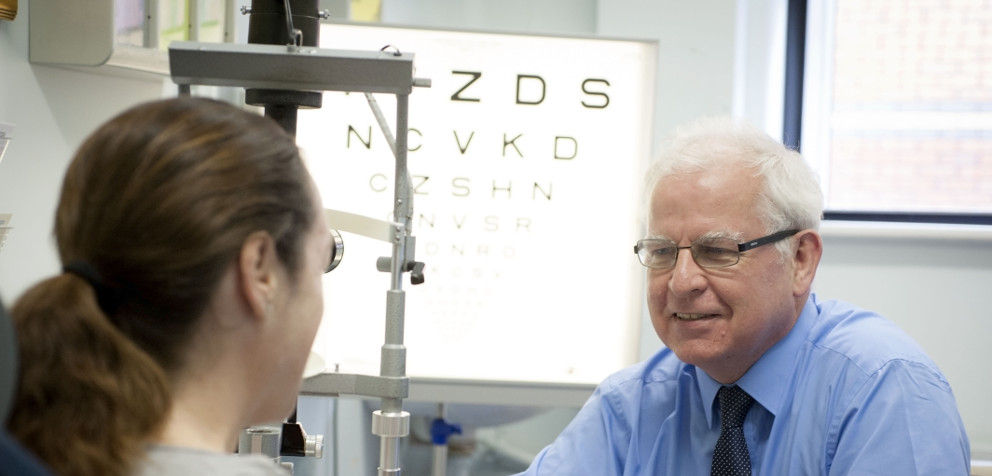Join a powerful, unprecedented alliance for better eye health for all.
Join IAPB-
Choose an alternate language here

Press Release 24 July 2017, London – Standard Chartered’s Seeing is Believing programme, a collaboration between the bank and the International Agency for the Prevention of Blindness (IAPB), has launched the third phase of its Innovation Fund, expanding four existing projects and awarding grants to six new projects.
Launched in 2013, the fund encourages innovators to develop pioneering ideas that have the potential to significantly impact how eye care is delivered in low and middle income countries.
The first two phases have funded landmark projects including developing smartphone technology to enable eye screening in remote locations in Kenya and India; building platforms for high quality remote online training in Africa; developing portable, low cost equipment for cataract surgery and manufacturing realistic eye models to enable surgical training in Tanzania.
In this next phase we have awarded grants totalling over USD1million, including USD550,000 to six new projects to begin tackling a diverse range of issues associated with avoidable blindness.
New projects
These projects are:
Scaling up
Three of the projects from the fund’s first and second phases will now receive USD370,000 to allow them to expand the scope of their work, either by continuing their research or scaling up their operations.
These projects are:
Breaking down barriers

Peter Ackland, CEO of IAPB, said, “This fund, and the grants that it provides, is at the forefront of breaking down the barriers that are standing in the way of eliminating avoidable blindness. The need for quality eye-care is most prevalent in remote, low-income locations. The Innovation Fund has allowed people and groups to approach that problem in unique and creative ways, and already we’ve made several breakthroughs that could revolutionise eye-care across the globe.”
Peter Scanlon, Consultant Ophthalmologist at Gloucestershire Hospitals NHS Foundation Trust, said, “Diabetes is still the most frequent cause of loss of vision and blindness in the world’s working-age population.
“The Innovation Fund has supported three inter-linked projects that are significantly helping to address this, from our first pilot, which allowed us to provide web-based professional education in low-income countries in different languages, to this latest phase where we will provide eye doctors with essential education and training in laser treatment for diabetic eye disease.”